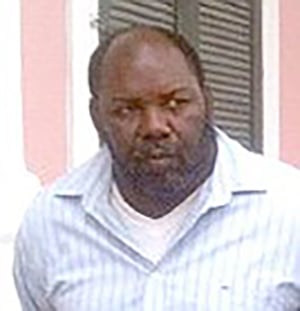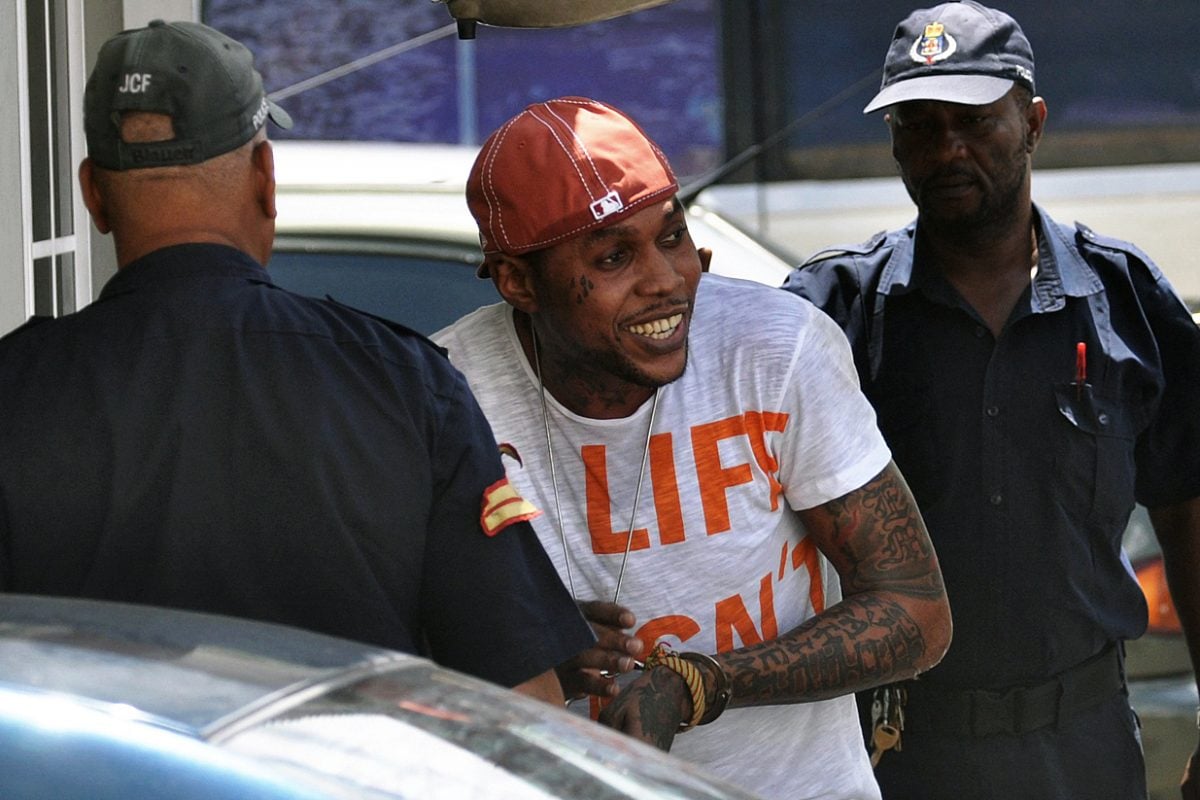‘King of Dancehall’ Vybz Kartel‘s future hangs in the balance as Jamaica’s Court of Appeal weighs whether to free him or order a retrial following the UK-based Privy Council’s overturning of his murder conviction. The ruling parallels the case of Simeon Bain, the so-called “Burger King Killer” in the Bahamas, who spent 13 years in prison before he was released instead of retried.
Kartel (Adidja Palmer) and three co-accused — Shawn ‘Storm’ Campbell, Kahira Jones, and Andre ‘Mad Suss’ St John — have served over 12 years after they were found guilty in 2014 of murdering Clive ‘Lizard’ Williams in 2011. The Fever artist initially received the harshest sentence, with over 30 years until eligible for parole.
The conviction was upheld by Jamaica’s Court of Appeal in 2020, but the Privy Council, the island’s highest court, overturned it earlier this month, citing serious jury management issues, particularly the continuation of the trial with a ‘tainted’ juror, which had compromised the fairness of the trial.
Bahamian Simeon Bain was convicted of kidnapping and murdering Burger King assistant manager Rashad ‘Shanty’ Morris after a failed attempt to rob the restaurant’s safe in 2009. The prosecution sought the death penalty, but Bain was sentenced to life in prison in 2013. In 2017, the Bahamas Court Of Appeal upheld his convictions but allowed the appeal against the life sentence, substituting a sentence of 55 years.
In April 2020, the Privy Council overturned Bain’s convictions, ruling that he did not have a fair trial because he was forced to represent himself after his lawyer resigned. Describing Bain’s case as one “of serious mismanagement,” the Privy Council noted that “if matters had been handled properly,” Bain would either have been persuaded to retain his original attorney or would have obtained an alternative choice, giving him a fair trial. Like in Kartel’s case, the Privy Council also sent Bain’s case back to the local Court of Appeal to consider whether he would face a new trial, according to The Tribune.
It took the Bahamas Court of Appeal almost two years to decide that Bain should be freed—a decision that Kartel’s attorney, Isat Buchanan, hopes will happen much sooner in his case, and one that Jamaica’s prosecutors are keen to avoid.
In explaining its ruling, the Bahamas court cited the passage of 13 years since the crime, the impracticality of a retrial amidst a heavy backlog of cases, and the anticipated “ordeal” a new trial would entail for Bain, Morris’ family, and the public.
“This is not an easy call,” the court wrote in its February 2022 ruling, the Nassau Guardian reported.
“However, having considered the various factors, we are satisfied that notwithstanding the seriousness of the offenses and their prevalence, these offences took place nearly 13 years ago and the case is effectively an old case. … We are satisfied that in this particular case, it is not in the interests of justice for the appellant to undergo a fresh trial.”
The appellate court also noted that both sides would incur a financial cost if a new trial were held, though it said it is in the interest of justice that “persons who commit violent crimes are brought to justice, and society is well served by putting violent criminals in prison.”
The judges also reasoned that Bain had remained in custody since his arrest in 2009 and that none of the delays in the case was his fault.
‘Strength of the case’
Interestingly, the Bahamas appellate court said that the ‘strength of the case,’ while important, was not sufficient alone to mandate a retrial.
Morris’ murder, which took place in the parking lot of the Burger King, was captured on closed-circuit television (CCTV), but the perpetrator, who wore a ski mask, was only identifiable via a key witness — Bain’s girlfriend, Zina Davis. In court, Bain said he had been framed, and his confession had been coerced at the police station.
“In the circumstances of this particular case, we do not consider the strength of the case which was presented at the previous trial so overwhelming as to be a determinative factor by itself to order a new trial,” read the court’s ruling.
“As the [Privy Council] Board appears to have recognized, this is a case where, on the one hand, if a jury properly directed, accepted Ms Davis’ evidence together with the appellant’s confession, they could on a retrial still convict the appellant. On the other hand, assuming that the confession were to be admitted into evidence on a new trial, with proper representation and more robust cross-examining of Ms Davis as to what she saw at the police station, a jury properly direct, could just as easily reject the appellant’s confession on the basis that it was coerced and acquit him.”
In Kartel’s case, the Director of Public Prosecutions (DPP) Paula Llewellyn has already declared that her office would seek a retrial, citing the “strength of the case.”
“I believe we would be obliged to, given the strength of the case for the prosecution that was put up and given the authority and the case law,” she told IRIE FM last week.
Her office had relied on telecommunication evidence — including a text message stating that Williams, whose body was never found, had been “chopped up fine fine” — and the key eyewitness, Lamar “Wee” Chow, who testified that Williams was murdered at Kartel’s home in Havendale, St Andrew on August 16, 2011, after they were summoned there over missing guns.
In the original trial, Kartel’s defense challenged the admissibility of the telecommunications evidence, arguing the police had obtained it in breach of the Interception of Communications Act, and in breach of the right to privacy of communication under the Charter Of Fundamental Rights and Freedoms contained in the Jamaican constitution. They had also questioned Chow’s credibility and cited his inconsistent account of the events, including Chow’s letter to a Public Defender, which stated that he saw Williams after August 16, 2011, and that the police had pressured him to give a conflicting statement.
One potentially crucial difference between the cases lies in the immense media attention surrounding Kartel’s trial. His attorney, Isat Buchanan, during a recent podcast interview, questioned the possibility of a fair retrial given the high level of publicity.
“What about publicity? What about the prospects of having a fair hearing?” he mused. “It’s [the retrial] not going to happen.”

 8 months ago
458
8 months ago
458


 English (US) ·
English (US) ·